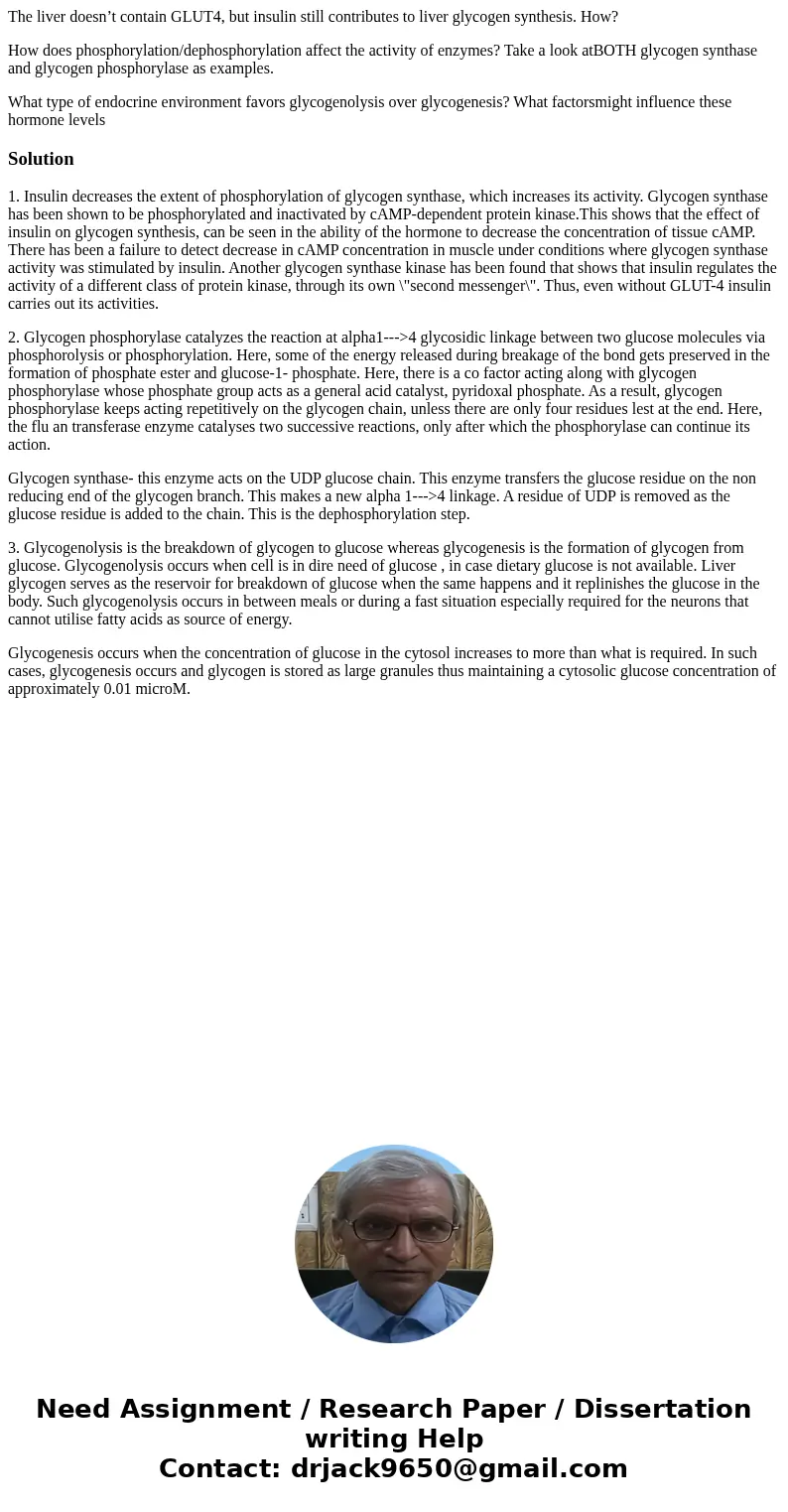The liver doesnt contain GLUT4 but insulin still contributes
The liver doesn’t contain GLUT4, but insulin still contributes to liver glycogen synthesis. How?
How does phosphorylation/dephosphorylation affect the activity of enzymes? Take a look atBOTH glycogen synthase and glycogen phosphorylase as examples.
What type of endocrine environment favors glycogenolysis over glycogenesis? What factorsmight influence these hormone levels
Solution
1. Insulin decreases the extent of phosphorylation of glycogen synthase, which increases its activity. Glycogen synthase has been shown to be phosphorylated and inactivated by cAMP-dependent protein kinase.This shows that the effect of insulin on glycogen synthesis, can be seen in the ability of the hormone to decrease the concentration of tissue cAMP. There has been a failure to detect decrease in cAMP concentration in muscle under conditions where glycogen synthase activity was stimulated by insulin. Another glycogen synthase kinase has been found that shows that insulin regulates the activity of a different class of protein kinase, through its own \"second messenger\". Thus, even without GLUT-4 insulin carries out its activities.
2. Glycogen phosphorylase catalyzes the reaction at alpha1--->4 glycosidic linkage between two glucose molecules via phosphorolysis or phosphorylation. Here, some of the energy released during breakage of the bond gets preserved in the formation of phosphate ester and glucose-1- phosphate. Here, there is a co factor acting along with glycogen phosphorylase whose phosphate group acts as a general acid catalyst, pyridoxal phosphate. As a result, glycogen phosphorylase keeps acting repetitively on the glycogen chain, unless there are only four residues lest at the end. Here, the flu an transferase enzyme catalyses two successive reactions, only after which the phosphorylase can continue its action.
Glycogen synthase- this enzyme acts on the UDP glucose chain. This enzyme transfers the glucose residue on the non reducing end of the glycogen branch. This makes a new alpha 1--->4 linkage. A residue of UDP is removed as the glucose residue is added to the chain. This is the dephosphorylation step.
3. Glycogenolysis is the breakdown of glycogen to glucose whereas glycogenesis is the formation of glycogen from glucose. Glycogenolysis occurs when cell is in dire need of glucose , in case dietary glucose is not available. Liver glycogen serves as the reservoir for breakdown of glucose when the same happens and it replinishes the glucose in the body. Such glycogenolysis occurs in between meals or during a fast situation especially required for the neurons that cannot utilise fatty acids as source of energy.
Glycogenesis occurs when the concentration of glucose in the cytosol increases to more than what is required. In such cases, glycogenesis occurs and glycogen is stored as large granules thus maintaining a cytosolic glucose concentration of approximately 0.01 microM.

 Homework Sourse
Homework Sourse